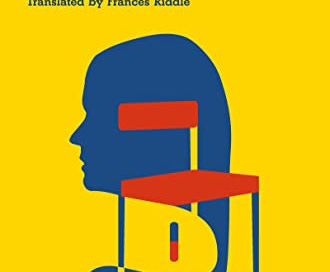We’re still “all things free” here at The Declining Academic, so…
I love stumbling upon writers and books that have been completely invisible to my radar. This is the case with Claudia Piñeiro, an Argentinian novelist and screenwriter, who wrote the absolutely dazzling novel Elena Knows. Piñeiro is known as a crime or mystery writer, and that certainly plays a role in Elena Knows, but in a minimal way—this is no Nordic noir. Claudia Knows is a quick read, coming in at 143 pages, and Frances Riddle translated the edition I discuss below.
Here’s the deal: if you care about a woman’s right to choose and support a pro-choice society, read this novel pronto. (Piñeiro is a dedicated pro-choice advocate, and Argentina overhauled their restrictive anti-abortion laws in 2020, which, according to The Center for Reproductive Health, makes them one of only four Latin American countries to grant access to abortion “upon request.”) But be prepared, this novel delivers its messages in the most unpredictable, unexpected ways imaginable. It will take your breath away, make you uncomfortable, and then you’ll want to read it all again. What more can you ask from a writer?
Jaw-dropping achievement #1: the story’s protagonist suffers from Parkinson’s, and this abruptly stands the mystery genre on its head. Whereas traditional mysteries focus on the mind—the clues, the investigation, the assembling of the puzzle—Elena knows details every element of Elena’s physical journey to travel to the other side of town. Elena Knows offers itself as a mystery novel of the body, rather than the mind. Elena embarks on an arduous journey across town to ask someone for a single favor: to help her convince authorities that her daughter’s apparent suicide was a murder. That is all the setup that you need. This reads as Homer’s Odyssey condensed and narrated through the lens of someone struggling with a debilitating physical disease, and Elena, a new Odysseus, just needs to get that physical body somewhere in order to reveal what she holds in her mind.
Jaw-dropping achievement #2: when the big moment arrives, it will knock the wind out of you. I certainly gasped and said, “Oh my god!” aloud, in my home, forcing one of my cats to flee. This is the master stroke: Claudia Piñeiro has been winding up to deliver this breath-snatching blow the entire time, but as a reader I was too invested in the novel’s physical bodies to focus on the characters’ minds at work.
Jaw-dropping achievement #3: in this novel, the human body is not just a distraction. It is vital to the story and what I believe is the overall message. (No spoilers here!) Claudia’s body proves to be the vehicle for the novel’s breathtaking tenor, and together, they produce a metaphor so unique and surprising that you must approach one of the book’s major theme’s (reproductive rights) in an extremely challenging but refreshing light.
After all, “novel” does mean new. Read this book. You won’t regret it.




